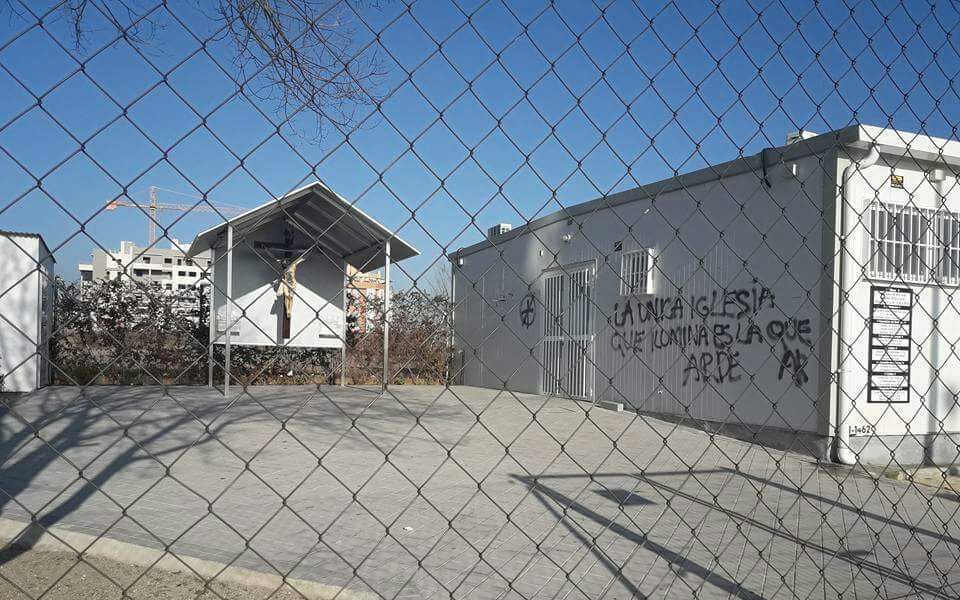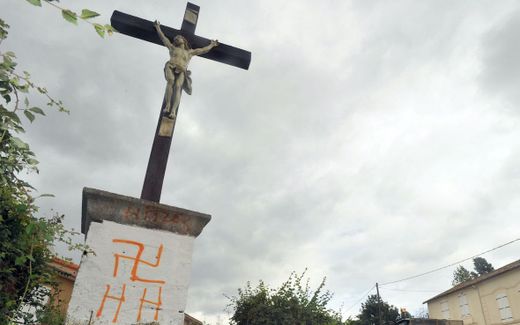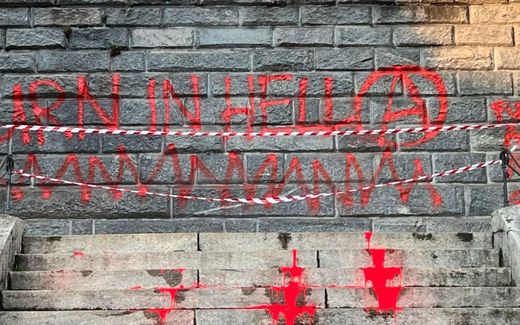Spanish believers experience more hatred because of their conviction

Church in Madrid that was vandalised by spray paint. The text reads: The only church that illuminates is a church that burns. Photo Twitter, Agencia FARO
Southern Europe
Last year, there were 63 registered instances of hate crimes against religion. A third of them took place in Valencian Community and the Madrid region.
The number of hate crimes is much higher than before, statistics from the Ministry of Interior Affairs show. That is reported by Protestante Digital. In total, law enforcers investigated 1,802 hate crimes in total. Since 2019, the number of this sort of crime has grown by 5.63 per cent.
The number of hate crimes has been growing for several years already. The Covid pandemic paused this trend, which now seems to continue again.
Of the total number of cases, 63 were directed against religious beliefs and practices. The Ministry of Interior Affairs report did not show which ones in particular. Of the incidents in 2021, 30 have occurred in places of worship. Compared to 2020, the number of hate crimes against religion has grown by 40 per cent. That year, 45 cases were registered.
The number of online hate crimes against people for their religion increased by more than 70 per cent in 2021 compared to 2020. In total, 12 incidents have been registered.
Most crimes against people because of their convictions took place in Valencian Community (11), the Madrid region (10) and Andalusia (9).
Anti-Semitism
In addition, anti-Semitism seems to be on the rise in Spain. Last year, 11 cases were reported. Compared to 2020, this amounts to an increase of 266 per cent. In general, racism and xenophobia are becoming more prominent reasons for hate crimes. In total, 639 cases were registered in this category, a rise of 32 per cent compared to 2020.
Fear and insecurity
Fernando Grande-Marlaska, the Minister of Interior Affairs, says that hate crimes are a severe threat “to the security of society as a whole.” According to him, they undermine the “peaceful coexistence of citizens.”
Not only do hate crimes instil fears in the victim, the Minister points out, but they also create “feelings of fear and insecurity in the social group to which the aggressor belongs.”
Related Articles






